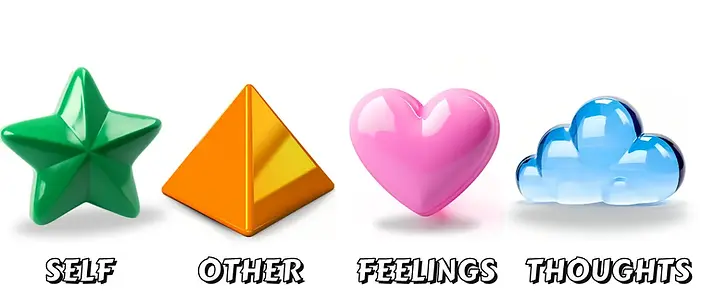Elevate Your Leadership Skills with Executive Coaching in Los Angeles
Executive coaching with a licensed therapist can go beyond what is commonly expected from coaching services and can offer surprising benefits to individuals seeking professional and personal growth.
Oliver Drakeford is an executive coach and licensed therapist who can help you explore the hidden advantages of executive coaching, providing insights into how it combats executive isolation, enhances thought leadership, elevates executive presence, operates in the zone of genius, and boosts self-confidence.

WHY SIGN UP FOR Executive COACHINg?
Executive coaching is not just a buzzword in the business world; it's a strategic investment in your growth as a leader. It's about honing your skills, expanding your horizons, and achieving excellence in your role. At its core, executive coaching is a collaborative and personalized process aimed at enhancing your leadership capacity
The value of executive coaching lies in its ability to accelerate development, enhance leadership skills, and drive positive change. By working closely with an experienced coach, individuals can gain clarity on their vision, refine their leadership approach, and navigate complex business environments with confidence.
Whether you're a seasoned executive looking to take your leadership to the next level or a rising star in your organization seeking guidance and support, executive coaching offers a transformative opportunity to maximize your potential and achieve long-term success.
Remember, investing in yourself as a leader is key to unlocking your true potential and driving both personal and professional growth. So, let's embark on this journey together and discover the remarkable benefits of executive coaching.

BENEFITS OF EXECUTIVE COACHING Services
Executive coaching can stand out as a powerful tool for achieving excellence and offers significant benefits in the world of leadership perspectives, enhancement of performance, and the bottom line of your career or organization.
SHIFTS IN PERSPECTIVES
Executive coaching provides fresh perspectives and encourages you to challenge your existing leadership paradigms. Through personalized one-on-one coaching sessions you can gain insights that can reshape your approach to leadership.
ACCOUNTABILITY
Coaches hold you accountable for your progress. This accountability ensures that you stay on track and remain committed to your development. It also teaches you how to hold other people accountable.
One of the fundamental benefits of executive coaching is heightened self-awareness. Coaches help you recognize your strengths, weaknesses, and blind spots. This self-awareness is the foundation upon which you can build more effective leadership skills.
ENHANCED SELF-AWARENESS
SKILL DEVELOPMENT
Executive coaching focuses on skill development. Whether it's communication, decision-making, or conflict resolution, coaches provide guidance and practical techniques to enhance your capabilities.
ACTIONABLE FEEDBACK
Coaches provide constructive feedback that is specific and actionable. This feedback is invaluable in identifying areas for improvement and formulating strategies for growth. Making sure you leave the session with goals and ideas to implement.
GOALS ORIENTATION
Coaches work with you to set clear and achievable goals. These goals become your roadmap to success, guiding your actions and decisions.
EXECUTIVE COACHING SERVICES WITH ME
I focus on a personalized approach to executive coaching, specifically designed to empower your personal growth and leadership journey. Essentially this is a tailored coaching program designed to help you develop emotional intelligence, cultivate resilience, manage stress effectively, enhance your interpersonal skills, understand complex relational dynamics that are occurring in your company, team or department.

Integrative Systemic Coaching
At its core, Integrative Systemic Coaching is rooted in the principles of group dynamics, systemic thinking, and structural systems theory, adapting these concepts to the unique challenges and structures of the business world. This approach recognizes that just like people, business teams are complex systems with their own dynamics, roles, and relationships. Each system, whether a family unit or a corporate team, operates within a set of norms and patterns that can either facilitate growth and success or lead to dysfunction and stagnation.
TEAM DYNAMICS
Integrative Systemic Coaching leverages the understanding of group dynamics to enhance team performance and collaboration. By analyzing the roles, interactions, and underlying emotional currents within a team, this approach helps in identifying and addressing systemic issues that may impede productivity and cohesion. Systemic thinking, a cornerstone of this methodology, encourages looking beyond individual behaviors to understand the broader context, the reciprocal nature of relationships and interconnectedness of actions within the team and the organization as a whole.
PRINCIPLES OF STRUCTURAL THEORY
Integrative Systemic Leadership Coaching places emphasis on the understanding of boundaries, power and communication within the hierarchical structures of an organization - an exceptional knowledge set for professional development. Both explicit and implicit boundaries can define interactions and decision-making processes across different levels of the hierarchy, an not necessarily in healthy or productive ways. By understanding and refining these boundaries, Integrative Systemic Coaching aids in creating a more streamlined, efficient, and respectful workplace environment and is a vital tool in leadership development.
ORGANIZATIONAL DIFFERENTIATION
On an individual level, Integrative Systemic Coaching incorporates the concepts of differentiation of self as it relates to leadership and personal development. This aspect focuses on enhancing an individual's ability to maintain their personal values and goals while effectively engaging in collaborative efforts, it prevents group think, lowers anxiety and allows for leaders to respond rather than react. It empowers professionals to operate from a place of self-assuredness and clarity, contributing authentically to their teams while maintaining their individual identity and emotional well-being.
FIVE WAYS INTEGRATIVE SYSTEMIC EXECUTIVE COACHING CAN BENEFIT YOU IF YOU're NEAR LOS ANGELES
For more context around this section, please see my article on Medium which explains more about the ideas at concepts I use with my Executive Coaching Clients.

Enhanced Decision-Making & Executive Coaching
Leaders who have cultivated a high level of differentiation stand out in their decision-making process. They possess the unique ability to sift through their own thoughts and feelings, have feelings about their thoughts, and thoughts about their feelings. Feelings are often a source of data that should be considered, but not usually acted upon without thinking about them first.
The differentiated leader remains calm in the face of uncertainty and in the face of the influences and emotions of their team or external pressures. This clarity allows them to evaluate situations more objectively, free from the pitfalls of groupthink or emotional reactivity.
Greater Emotional Intelligence
A key facet where ‘Differentiation of Self’ markedly benefits leadership is in the realm of emotional intelligence.
Leaders who have honed this aspect of differentiation demonstrate an acute awareness of their own emotional landscape.
The impact of this heightened emotional intelligence extends beyond self-awareness. These leaders are adept at recognizing and understanding the emotions of their team members. They can empathize deeply, discerning the underlying feelings and motivations of others without becoming enmeshed in them. This empathetic understanding fosters a supportive and responsive work environment where team members feel seen and understood. In my experience, everyone longs to be understood by their manager or leader.
Resilience Under Stress
Resilience under stress is a hallmark of leaders who have achieved a high level of self-differentiation. Such leaders are adept at maintaining composure and clarity, even in the midst of challenging or high-pressure situations.
The key distinction here lies in their ability to be responsive rather than reactive. An undifferentiated leader often falls into the trap of reactivity — where decisions are made impulsively, driven by unexamined emotions and immediate pressures.
Balanced Independence and Collaboration
This approach to coaching will provide insights into over and under-functioning in relationships provide a valuable lens to understanding managing teams so that functioning is balanced and team members are not becoming reactive.
Conflict Management Skills.
Effective conflict resolution is a critical skill in leadership, significantly influenced by the level of self-differentiation. Leaders who are less differentiated often find themselves more emotionally entangled in conflicts, which can cloud their judgment and escalate tensions. In such cases, their responses might be driven more by emotional impulses than by objective assessment, leading to decisions that may not effectively resolve the underlying issues. These leaders can get swept up in the ‘anxiety storm’ of their colleagues or employees, making it challenging to maintain a clear perspective. On the other hand, differentiated leaders exhibit a remarkable ability to manage conflicts with objectivity and composure. Their self-awareness allows them to recognize and regulate their emotional responses, preventing them from being overwhelmed by the emotional climate of the situation.
FREQUENTLY ASKED QUESTIONS
What should I look for in an executive coach?
When searching for an executive coach, consider their experience, coaching style, and alignment with your goals. Each coach mentioned above offers unique qualities to cater to various needs.
How often should I engage with my executive coach?
The frequency of engagement may vary, but most coaches recommend 1-2 hours per week, with additional indirect communication every two weeks. The precise amount of coaching time depends on your individual requirements.
How can executive coaching benefit my career?
Executive coaching can enhance your leadership skills, expand self-awareness, and align your professional and personal vision with organizational goals. It can be a significant catalyst for career growth and development.
.png)